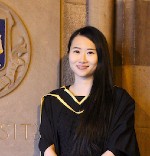Student Members
Centre Members
Members of the Centre for Social Mobility share an interest in rigorous research and effective practice that supports students to progress into higher education, should they wish to do so, and also to achieve within higher education and beyond. We aim to support and enhance research and practice locally at the University of Exeter and our local communities, nationally, and internationally.
 |
Hatice Yildirim, PhD Student, Graduate School of Education What: Her research interests include special educational needs, inclusive education, and participatory research. In particular, she is interested in the inclusion of children with hearing loss in mainstream educational settings. She has also taught as a teacher of the deaf/ hard of hearing in educational settings for six years in Turkey. Her doctoral study explores the coping strategies of children with hearing loss in relation to the challenges of school life in mainstream secondary schools in England. How: Qualitative research, mixed methods, participatory research. Why get in touch: If you are interested in exploring issues and ideas in special educational needs and inclusive education. |
|
Fatma Sabet, PhD Student, Graduate School of Education What: My dissertation focuses on developing partnerships to develop healthy and sustainable school food culture within primary schools. |
|
.jpg) |
Abbie O'Brien, PhD Student, Graduate School of Education What: My PhD topic is around Widening Participation in Higher Education with a specific focus on Social Class. My research has involved keeping the research participant's voice at the heart of the study. How: Predominantly qualitative research, student-centred approach. Why get in touch: If you are interested in discussing ideas and work around social class, widening participation in higher education or social science methods. |
 |
Tian Xu (Tianna), PhD Student, Research Assistant/Fellow, Graduate School of Education What: Interested in intercultural interaction and higher education internationalisation, learning and teaching statistics and qualitative methods. Her PhD thesis focuses on exploring intercultural interaction in culturally complex circumstances - through the lens of international volunteers from Mainland China. She also positioned in several different research assistants and research fellow roles at the University of Exeter. How: Predominantly Qualitative Research, Mixed Method research. Why: If you are interested in exploring higher education internationalisation and intercultural interaction. |
.jpg) |
Malcolm Richards, PhD Student / Postgraduate Researcher, Graduate School of Education What: I am a former teacher and senior leader who has worked in schools across the UK. I am also a trade union activist, and have held self-organising and executive roles representing Black educators/worker with National Education Union (NEU) and the Trade Union Congress (TUC). My research largely centres upon critical dialogic methodologies in UK teacher education, with an intention focus on how 'black' teachers capitalise upon their funds of knowledge/identity in the evaluation of culturally sustaining digital resources used in schools. How: Critical autoethnography, qualitative research, mixed methods, participatory research. Why get in touch: If you are interested in exploring or collaborating in ideas and work around any of the following: critical dialogic theories of education, race and anti-racism, African diaspora communties and cultural identity, culturally sustaining pedagogies, and de/colonial discourses in teacher education. |
.jpg) |
Daniela Fernandez, PhD Student, Psychology Department, CLES What: My PhD research focuses on how gender and social class shape higher education students' expectations of success, considering the role of sense of social fit and meritocracy beliefs. How: Mixed methods, quantitative research, qualitative research, participative research. Why get in touch: If you are interested in exploring/collaborating in ideas related to gender and social class, gender and meritocracy beliefs (e.g. entrepreneur discourses in young adults, MLM and gender inequality), critical social psychology, and mixed methods research. |
